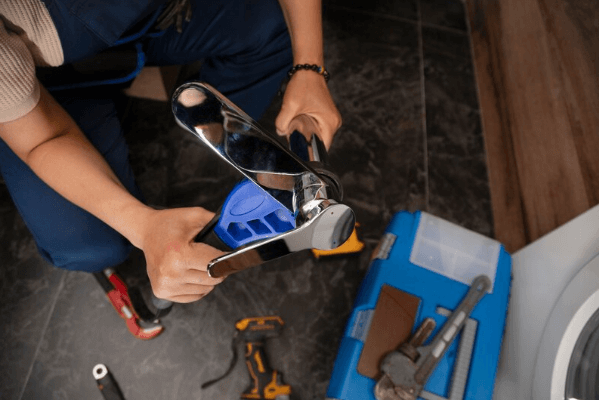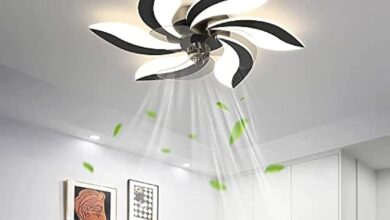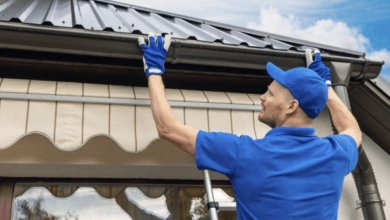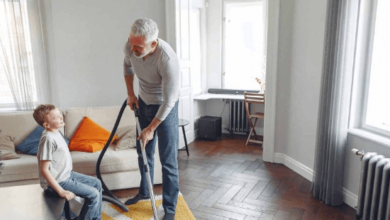The Importance of Regular Plumbing Inspections to Prevent Water Leaks

Water leaks can be one of the most damaging and costly issues homeowners face. Often, they go unnoticed until they cause significant structural damage, mold growth, or expensive repairs. Regular plumbing inspections play a crucial role in preventing water leaks and ensuring your home’s plumbing system operates efficiently.
This article will explore why regular plumbing inspections are essential, what they entail, and how they can save you from the nightmare of unexpected water leaks.
What is a Plumbing Inspection?
A plumbing inspection involves a thorough evaluation of your home’s plumbing system, checking for potential issues such as water leak repair, corrosion, blockages, or improper installations. Licensed plumbers typically conduct these inspections, using specialized tools and expertise to assess the condition of your pipes, water heaters, faucets, toilets, and other plumbing fixtures. Regular plumbing inspections are often recommended annually or biannually, depending on the age of your plumbing system and your location’s water conditions.
Key Components of a Plumbing Inspection
- Checking for Leaks – Plumbers check for both visible and hidden leaks, especially in areas like basements, under sinks, and behind walls.
- Water Pressure Assessment – Ensuring that the water pressure is neither too high nor too low to prevent damage to pipes.
- Pipe Condition Evaluation – Examining pipes for signs of wear, rust, or potential weak spots that could burst in the future.
- Water Heater Inspection – Ensuring the water heater is functioning efficiently without leaks or buildup that could reduce its lifespan.
- Fixture Examination – Checking faucets, toilets, and showerheads for leaks or inefficiencies.
- Sewer Line Inspection – In some cases, a camera inspection is used to detect blockages or damage in the sewer lines.
Why Are Regular Plumbing Inspections Important?
1. Early Leak Detection Saves Money
Water leaks, if undetected, can lead to skyrocketing water bills and costly repairs. A minor leak, such as a dripping faucet, can waste hundreds of gallons of water annually. Undetected leaks inside walls or under floors are even more dangerous. These hidden leaks can cause extensive damage, requiring expensive repairs to your home’s structure. By scheduling regular plumbing inspections, you can detect leaks early and address them before they escalate.
2. Preventing Structural Damage
Water leaks can weaken your home’s foundation and structure. Over time, the continuous presence of water can erode concrete, warp wooden structures, and encourage mold growth. Structural damage from water leaks is not always immediately visible but can lead to costly renovations if left unchecked. Regular inspections help detect and fix small leaks before they turn into major problems that threaten the integrity of your home.
3. Health Risks from Mold and Mildew
Mold and mildew thrive in moist environments created by water leaks. Exposure to mold can cause a range of health issues, especially for individuals with allergies, asthma, or weakened immune systems. Mold can grow in hidden areas like inside walls or under flooring, making it difficult to spot without proper inspections. Regular plumbing inspections help prevent mold growth by detecting leaks early and eliminating the source of moisture.
4. Extending the Life of Your Plumbing System
Your home’s plumbing system is a significant investment, and regular inspections are key to extending its lifespan. Aging pipes, worn-out seals, or corroded fixtures can lead to unexpected failures, but these issues are often avoidable with routine maintenance. Plumbers can identify potential problems and make minor repairs or replacements before a full system breakdown occurs. This proactive approach helps extend the longevity of your plumbing system and avoids the need for major overhauls.
5. Conserving Water
Water is a precious resource, and leaks contribute to unnecessary waste. According to the U.S. Environmental Protection Agency (EPA), household leaks can waste nearly 10,000 gallons of water every year. Regular plumbing inspections ensure your system is operating efficiently, preventing water waste and reducing your environmental impact. Fixing even minor leaks can significantly decrease your household’s water consumption.
Common Plumbing Problems Detected During Inspections
1. Leaking Pipes
Leaking pipes are one of the most common problems discovered during plumbing inspections. Leaks can occur due to corrosion, loose connections, or damaged seals. Left unchecked, leaking pipes can cause significant water damage and increase your water bills.
2. Clogged Drains and Sewer Lines
Blockages in drains or sewer lines can lead to backups and overflow, creating unsanitary conditions in your home. During an inspection, plumbers use specialized tools to detect clogs and ensure water flows freely through your pipes.
3. Faulty Water Heaters
A malfunctioning water heater can lead to inefficient heating, water leaks, or even dangerous situations such as gas leaks. Plumbers check water heaters during inspections to ensure they are working properly and free of leaks or corrosion.
4. Corroded Pipes
Pipes made of materials like steel or iron are prone to corrosion over time. Corroded pipes weaken and can burst, leading to significant water damage. Regular inspections help identify corrosion before it compromises the integrity of your plumbing system.
5. Worn-Out Seals and Gaskets
Seals and gaskets are essential components of your plumbing system, preventing leaks around joints and connections. Over time, these materials wear out and need replacement. A thorough inspection ensures that all seals and gaskets are in good condition.
How Often Should You Schedule Plumbing Inspections?
The frequency of plumbing inspections depends on several factors, including the age of your home, the material of your pipes, and your location’s water quality. Generally, it’s recommended to have your plumbing system inspected annually, especially if your home is more than 20 years old. Homes with older plumbing systems or those in areas with hard water may require more frequent inspections to prevent mineral buildup and corrosion.
Key Factors Influencing Inspection Frequency:
- Age of Plumbing System – Older homes with aging pipes may need more frequent checks to avoid issues related to corrosion or wear.
- Water Quality – Hard water can lead to mineral buildup in pipes, causing blockages or damage over time.
- Visible Leaks or Plumbing Issues – If you’ve experienced leaks or plumbing problems in the past, it’s wise to schedule more frequent inspections.
Benefits of Hiring a Professional Plumber for Inspections
While some homeowners may attempt to inspect their plumbing themselves, hiring a professional plumber offers several advantages. Licensed plumbers have the experience, tools, and expertise to identify issues that may go unnoticed by the untrained eye. They can also use advanced technology, such as camera inspections, to check hidden areas of your plumbing system.
Key Advantages of Hiring a Professional:
- Expert Diagnosis – Professionals can accurately diagnose issues and recommend appropriate solutions.
- Advanced Tools – Plumbers have access to specialized tools, such as pressure gauges and pipe cameras, for thorough inspections.
- Preventative Maintenance – Professional plumbers can perform minor repairs during inspections, preventing larger problems in the future.
- Peace of Mind – Knowing your plumbing system has been inspected by an expert gives you confidence that your home is protected from potential leaks and water damage.
Conclusion
Regular plumbing inspections are a proactive way to prevent water leaks, protect your home’s structure, and avoid costly repairs. By catching potential problems early, you can save money on water bills, extend the life of your plumbing system, and ensure the health and safety of your home. Whether you’re a new homeowner or have lived in your home for years, scheduling routine plumbing inspections should be a top priority. Investing in these inspections not only conserves water but also safeguards your home from the hidden dangers of water leaks.





